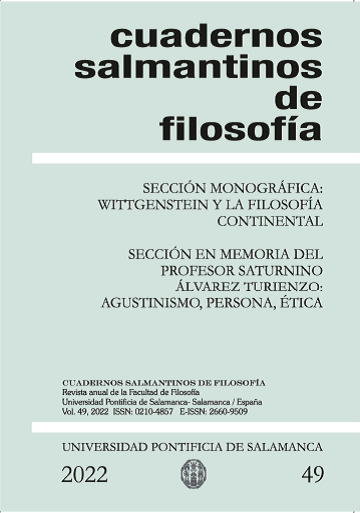How to conduct research into history by assembling certainties Some guidelines drawing from Wittgenstein's and Ortega y Gasset's later works
Main Article Content
José Ortega y Gasset relied on his notion of ‘belief’ to argue that historical studies should consist, above all, in assembling the distinctive and characteristic beliefs of a historical period: for, in this way, we could know what was regarded as reality within that context, which might allow us to gain a better understanding of the historical events under study. As I will show in this paper, Ludwig Wittgenstein did not evince an interest in historical studies; yet his notion of ‘certainty’ is very similar to Ortega y Gasset’s conception of ‘belief’, in addition to which certainty in Wittgenstein’s sense may be of great help to better understand not only how historical studies can be conducted by following Ortega y Gasset’s suggestions, but also which risks are entailed by
such studies.

